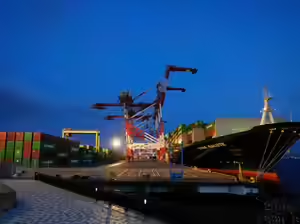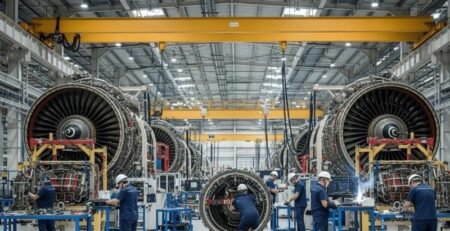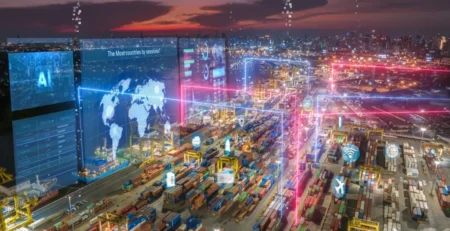Google I/O 2025: AI Sets a New Standard for Intelligent Logistics

By Maria Kalamatas | The Logistic News – Tech Section
Mountain View, California – May 19, 2025
“We’re not just building tools. We’re creating foundations for smarter industries.”
— Sundar Pichai, CEO of Google
From Code to Cargo: AI Becomes Operational
This year’s Google I/O felt different. More focused. More applied. The message was clear: AI is no longer an experiment — it’s infrastructure.
In a packed auditorium, Google introduced technologies that reach far beyond app development. For logistics operators, manufacturers, and supply chain managers, the announcements signal a shift toward intelligence built into every layer of operations, not just back-end systems.
Gemini 2.5: The AI That Thinks Across Formats
One of the most anticipated unveilings was Gemini 2.5, Google’s latest and most versatile AI model. What makes it unique isn’t just power — it’s its ability to interpret voice, images, text, and context all at once.
For the logistics industry, this translates into smarter systems that can anticipate demand, reroute shipments in real time, and improve visibility across multi-modal transport chains.
Executives on-site spoke of cutting not just errors, but decision-making time — turning hours into seconds.
Project Astra: Real-Time AI With Eyes and Ears
Google also pulled the curtain back on Project Astra, an AI assistant platform capable of listening, watching, and interacting — simultaneously. These agents are designed to operate in dynamic, high-pressure environments, such as warehouses, distribution centers, and port terminals.
Think of a virtual assistant that can process a photo of damaged goods, interpret a spoken request, and generate a replacement order without delay. That’s not a future concept — it’s already being tested.
Devices That Stay With the Worker
Hardware wasn’t left behind. Google introduced Android 16 and a major update to Wear OS, offering longer battery life, seamless pairing, and better security — critical for logistics teams working in motion.
The new systems will allow warehouse staff, field technicians, and last-mile couriers to stay connected, tracked, and assisted — without breaking focus or draining power mid-shift.
AI Meets Sustainability
Beyond performance, Google emphasized its responsibility to the planet. The company unveiled expanded goals around carbon-free energy, hardware circularity, and low-emission data centers.
More than symbolic, these efforts provide a roadmap for logistics providers under pressure to green their operations. Technology that delivers results is no longer enough — it has to do so ethically and sustainably.
A Moment of Redefinition
If last year was about proof of concept, 2025 is about deployment. AI tools unveiled at Google I/O are designed for integration, not experimentation. Logistics firms that adopt them now will move faster, operate smarter, and offer better service — at scale.
In a sector where every delay has a cost, intelligence isn’t optional — it’s essential.
The Logistic News – Tech Section
We bring you the technology that moves the world.
The post Google I/O 2025: AI Sets a New Standard for Intelligent Logistics appeared first on The Logistic News.
Share this post
Related
Posts
Finland warns of probable attempts to sabotage underwater infrastructure
Finland is raising its voice on a subject that has become critical for Europe: the vulnerability of cables, telecom links,...
Exports are still progressing, but the decline toward the United States is worrying
Japan records a fourth consecutive month of export growth, driven by solid demand in certain technological segments. But behind this...
The value of engines boosts teardowns and strains the freighter chain.
Engines are sometimes worth more than the plane: “teardowns” are accelerating and the freighter conversion chain is tightening Context: Engines...
Data becomes the strategic weapon of shipping in 2026
The digital transformation of the maritime sector is reaching a turning point: by 2026, data will no longer be a...




